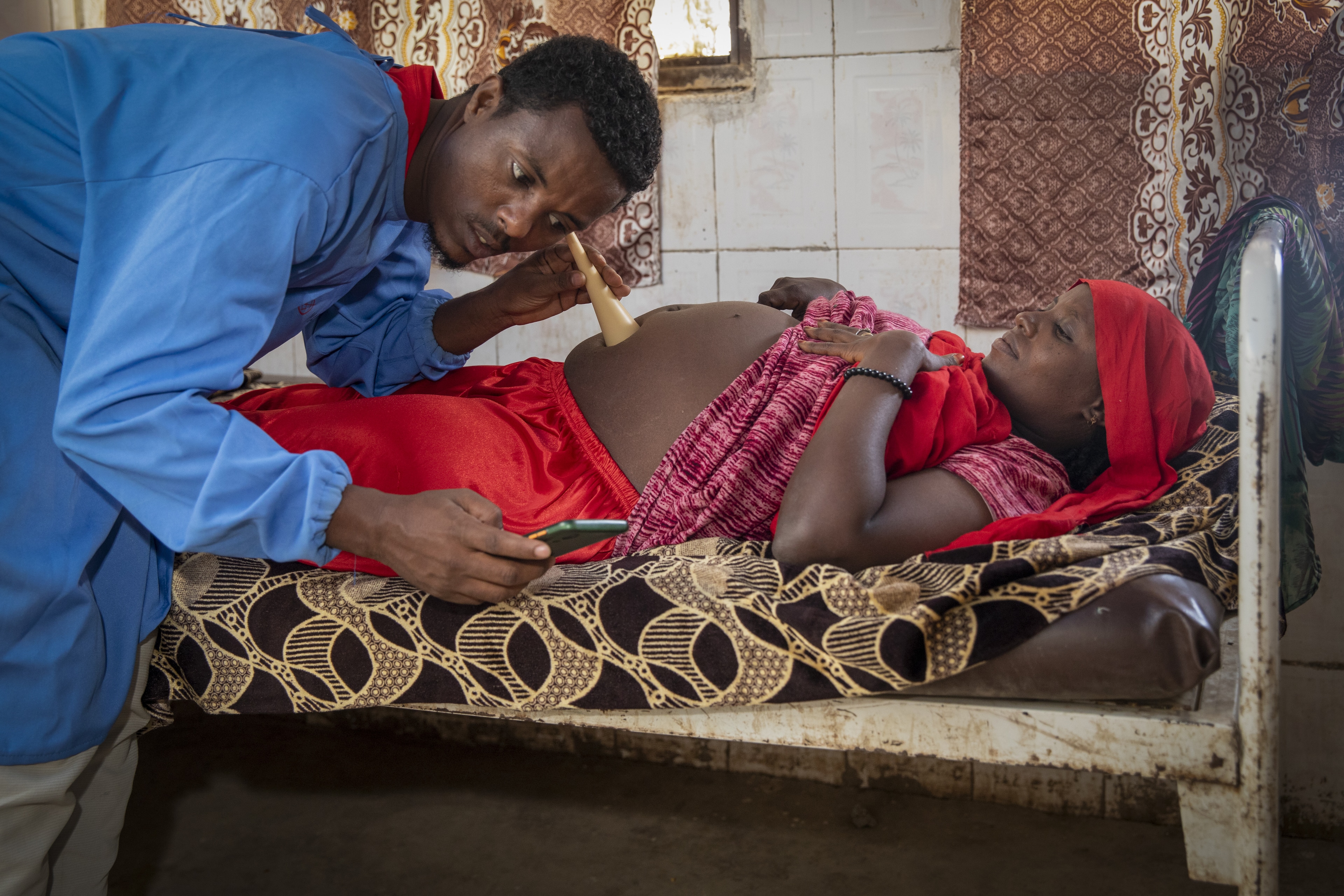This man is on a mission to cure paralysis in our lifetime. Here’s his story

Mark Pollock is the first blind person to race to the South Pole. Image: Peter Macdiarmid for the Mark Pollock Trust

Get involved with our crowdsourced digital platform to deliver impact at scale
Stay up to date:
Health and Healthcare
- Mark Pollock is a scientific explorer on a mission to bring people together to cure paralysis in our lifetime.
- He’s also a World Economic Forum Young Global Leader and an adventure athlete who has raced to the South Pole, as well as across deserts, mountains and oceans worldwide.
- Pollock spoke to the Forum about the work of his charity and his involvement in paralysis research that seeks to find an affordable, accessible cure.
"My name is Mark Pollock, and I'm a scientific explorer. I'm trying to bring people together to cure paralysis in our lifetime."
It’s an extraordinary goal – but then, as the first blind person to race to the South Pole, Pollock is an extraordinary man.
The challenge of curing paralysis is, of course, complex, as he points out – less a question of money or a lack of curiosity, but more to do with fragmentation and transferring the knowledge gained in a lab to the clinic.
In this edited interview, the World Economic Forum Young Global Leader talks about the personal drivers that have shaped his journey into paralysis research and how the work of his charity Collaborative Cures is supporting its progress.
The challenges that choose you
“Sometimes we choose our challenges and sometimes challenges choose us. What we decide to do about it is what counts,” says Pollock.
When he was 22, about to graduate from university, he lost his sight – and responded by becoming an adventure athlete. He’s raced across deserts, mountains and oceans all over the world, including a 43-day trek across Antarctica, becoming the first blind person to race to the South Pole.
“And then a year after that, when I felt unstoppable, I fell out of the window and broke my back. And being an adventure athlete wasn't really an option,” he explains, taking up the story.
“I can't do anything about those particular challenges, the fact that they happened. But what I could do was make decisions that improved my situation from that point on.”
At that point, Pollock says, he turned his attention to finding a cure for paralysis, principally by helping scientists translate their work from the lab to the clinic.
Curing paralysis in our lifetime
Around 18,000 people are affected every year by spinal cord injuries in the US alone. Vehicle crashes are the leading cause, followed by falls, according to the Christopher & Dana Reeve Foundation.
Pollock has been involved with the Foundation on groundbreaking experimental research at the University of California, Los Angeles (UCLA), which involves walking with robotic legs alongside electrical stimulation. Volunteering, he refers to as being a “human guinea pig”.

It takes a lot of people, time, money and effort to achieve such a complex combined study at a top research facility like the one at UCLA, Pollock says.
But, he adds, it’s no good if the impactful research can’t be rolled out to the rest of the world.
How is the World Economic Forum bringing data-driven healthcare to life?
Funding and commercializing paralysis research
UCLA Professor Reggie Edgerton – who Pollock describes as “a punk scientist battling against conventional wisdom” – has led this collaborative study involving spinal stimulation to promote voluntary movement of paralyzed limbs. Commercialization, though, has proved difficult, Pollock says.
“I naively thought that it was just about scientists having a discovery, commercializing the discovery and then everyone would be able to access it,” he explains.
"But there's a huge point around affordability and accessibility. So many people around the world will not be able to afford these technologies unless we come up with some way of making them available, having them funded for those people."
Determined to be part of the solution, Pollock has been working collaboratively to help fund and accelerate the development of vital paralysis research.
“We helped Reggie to raise $5 million. A few years later, with a whole load of other people, we helped them to raise another $10 million and then merge with a company in Europe. And that company has raised over $100 million in the last couple of years.”
And the pace of development is ramping up, he is pleased to confirm.
“The ultimate output of all of that is that people who are paralyzed are going to have meaningful therapies, perhaps as early as the start of 2024 that they can access in the clinic, that they can access commercially, that they can access out of the research lab.”
Running in the dark
Pollock also contributes to funding through his annual global running event, Run in the Dark, which takes place every November. It attracts around 25,000 people and helps raise money to explore what he describes as “the intersection where humans and technology collide”. He is also chairman of Collaborative Cures, a recently launched charity with the single aim of bringing people together to cure paralysis in our lifetime.
The charity is focused on accelerating progress around releasing working therapies, mainly through connecting scientists and technologists with the business, regulatory and investment community, Pollock explains.
He has also been able to harness the abilities and knowledge of the Young Global Leaders Community, as an alumnus of this World Economic Forum initiative. Designed to help young people enhance their skills, broaden their world view and hopefully develop innovative solutions to global problems, it currently has over 1,400 members.
“I came to the problem of paralysis by applying what I've learned from putting together expeditions: turning up in the gym every day to train, putting teams together, raising money, telling the story. But it was low level,” Pollock explains.
“What we managed to do through the Young Global Leaders Community was bring in people who knew about things that I had no idea about – IP, management teams, start-up investment – and we have already had a meaningful impact in the commercialization of spinal stimulation technology.
“I do not doubt that other people within the community will be able to help with the challenge we have about making that technology affordable for millions of people around the world.”
Don't miss any update on this topic
Create a free account and access your personalized content collection with our latest publications and analyses.
License and Republishing
World Economic Forum articles may be republished in accordance with the Creative Commons Attribution-NonCommercial-NoDerivatives 4.0 International Public License, and in accordance with our Terms of Use.
The views expressed in this article are those of the author alone and not the World Economic Forum.
Related topics:
The Agenda Weekly
A weekly update of the most important issues driving the global agenda
You can unsubscribe at any time using the link in our emails. For more details, review our privacy policy.
More on Health and Healthcare SystemsSee all
Dame Sally Davies, Hemant Ahlawat and Shyam Bishen
May 16, 2024
Michael Anderson, Gunnar Ljungqvist and Victoria Saint
May 15, 2024
Charlotte Edmond
May 14, 2024
Shyam Bishen
May 13, 2024
Anna Cecilia Frellsen
May 9, 2024
Angeli Mehta
May 8, 2024







